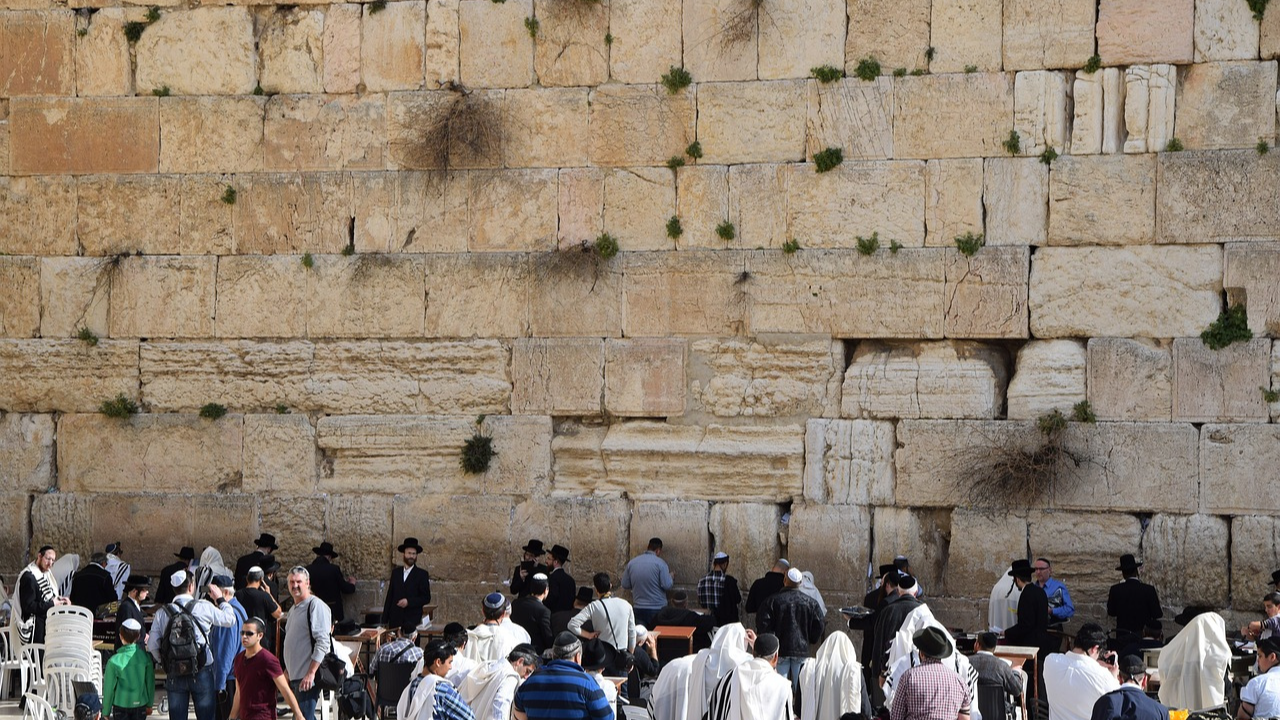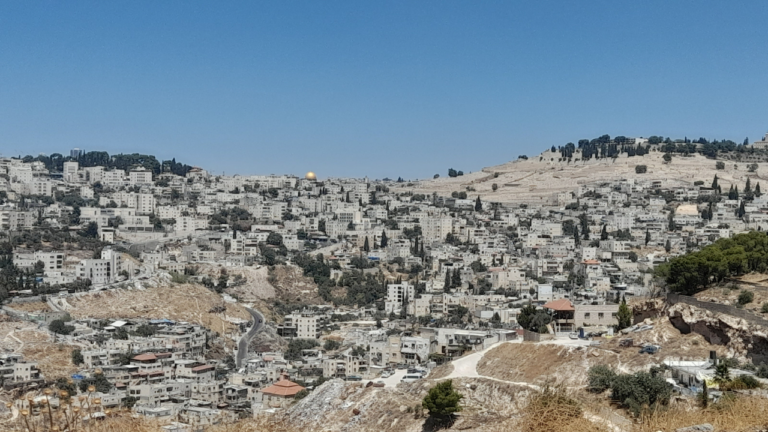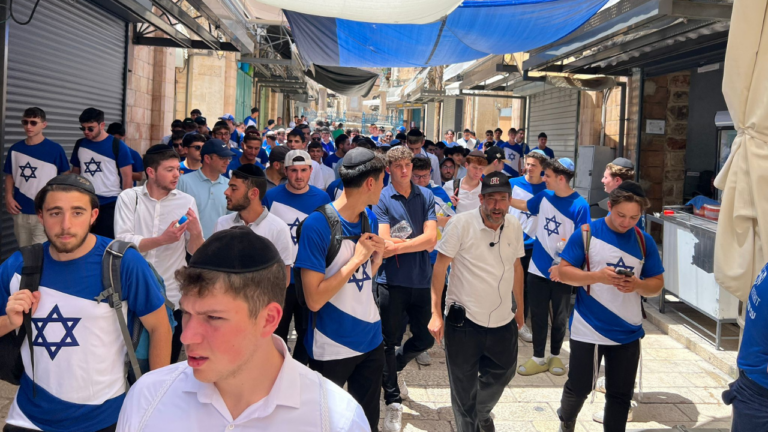Hashem’s Eternal City, Hashem’s Eternal People
In one of the darkest moments in Jewish history, Sefer Melakhim (1:11:29-39) describes the encounter between Ahiya HaShiloni and Yerov’am ben Nevat in which Hashem promises to split Bnei Yisrael between two kingdoms. Ahiya tears apart a beautiful new garment into twelve pieces, giving ten of those pieces to Yerov’am. These portions represented the ten tribes of Israel being torn away from the hand of Shlomo HaMelekh and the royal Davidic line; Yerov’am was now granted control over them. Jerusalem would no longer be the sole capital of the Jewish people, and the sons of Rachel and Leah would be split asunder once again.
Not coincidentally, the Navi tells us that this tragic meeting occurred as Yerov’am was leaving Jerusalem; his departure from the holy capital symbolized his alienation from the city founded by David HaMelekh. In fact, Yerov’am’s first mistake (and possibly the most significant sin in Jewish history, see Rambam Hilkhot Teshuva 5:2) upon ascending to kingship was to divert the ten tribes’ attention away from Jerusalem (Perek 12). He feared that focus on Jerusalem as the spiritual capital would inevitably cause the entire nation to reunify under Rehovam ben Shlomo. To avoid this inevitable return, he created two golden calves for worship to replace Jerusalem. Just as the revelation at Har Sinai was marred by the creation of a golden calf, disturbing the “lion’s roar” of Anokhi Hashem, so too Jerusalem’s spiritual status as Hashem’s chosen city was challenged with the creation of golden calves.
But even in this cataclysmic moment, as Hashem promises to remove the majority of Klal Yisrael away from Jerusalem, he reaffirms its eternal significance as His chosen city. The Midrash (Yalkut Shimoni to Parshat Terumah 364) explains that whenever Hashem uses the language of לי, such as ויקחו לי in this week’s parasha, His connection to and desire for this mitzvah is everlasting. כל מקום שנאמר לי הרי זה קיים לעולם ולעולמי עולמים. The mitzvah of Mikdash, introduced with the phrase ועשו לי מקדש, is eternal. Similarly, the Midrash quotes Ahiya informing Yerov’am that Rehovam son of Shlomo will remain king in Jerusalem. “And his son I shall give one tribe so that David My servant may have a kingdom before Me in Jerusalem, the city which I chose for Myself (אשר בחרת לי) to place My name there (11:36).”
When something belongs to Hashem, when God claims it for Himself, it definitionally will never be lost. Just as God is absolutely eternal, the mitzvot and sanctified places that he declares “ownership” over share in that eternity. Even as the centrality of Jerusalem is shattered, HaKadosh Barukh Hu deliberately emphasizes that the bekhirah of Jerusalem, its status as the chosen and eternal capital of God, remains untarnished.
(Perhaps on a deeper kabbalistic level, the language of the Midrash “לעולם ולעולמי עולמים” connotes Jerusalem’s eternal status in all spiritual worlds. Even beyond our mortal world (referred to as the Olam HaAsiyah), Jerusalem’s permanence and spiritual chosen-ess transcends into the highest of spiritual realms. See Nefesh HaHayim 1:20.)
The Midrash also notes that Bnei Yisrael themselves were “claimed” by Hashem, cementing their status as the Am HaNetzach, כי לי בני ישראל. May Hashem’s eternal people victoriously return to Hashem’s eternal city, speedily in our days.



